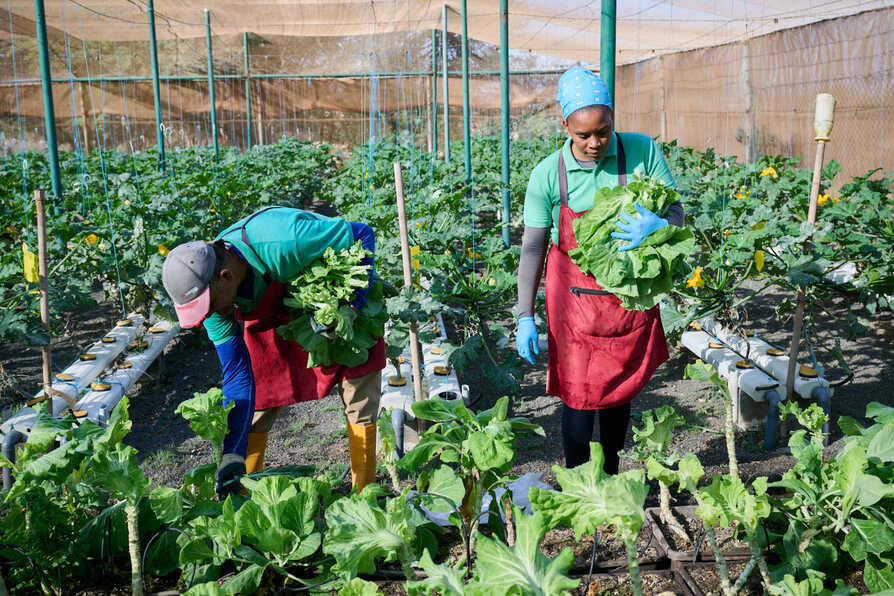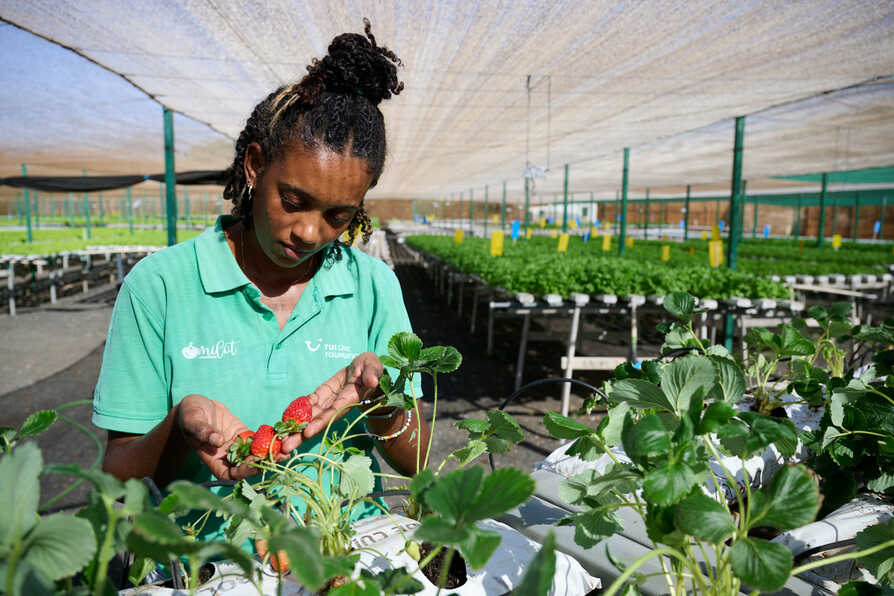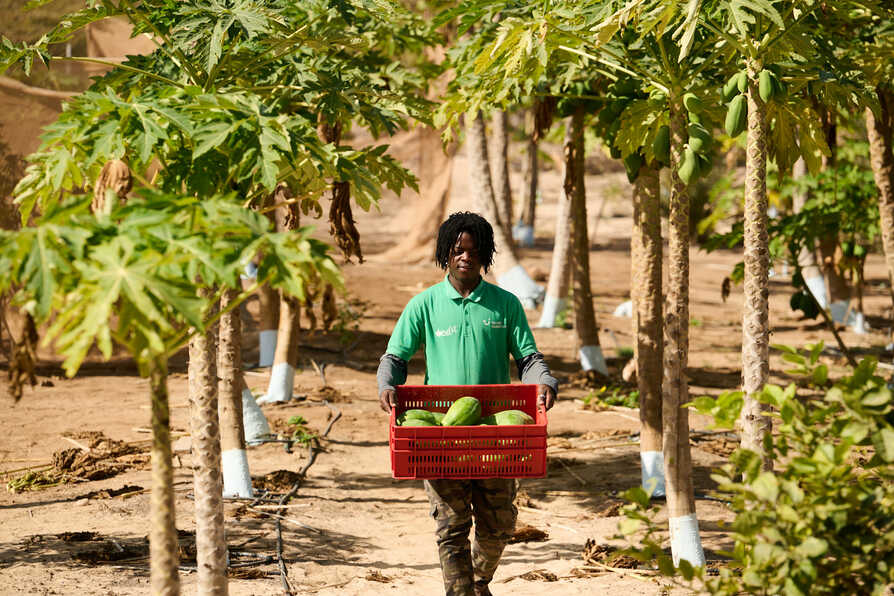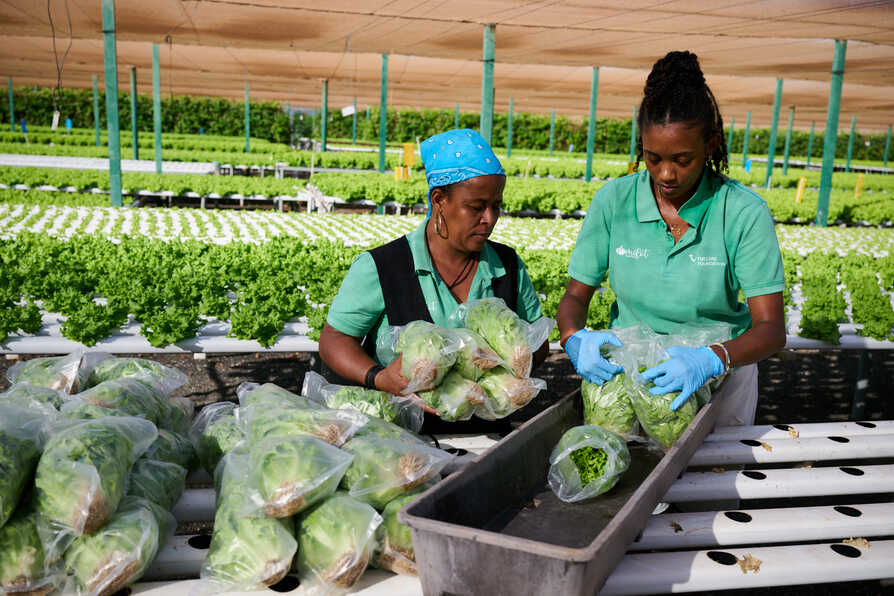- New global initiative brings together TUI Care Foundation, UN Tourism and the University of Cambridge’s Centre for Resilience and Sustainable Development (CRSD)
- Two-year action-research project to will strengthen local food economies, promote circular practices in the tourism sector and tackle food waste
- Key outputs include a 2040 Impact Roadmap and a pilot programme to test real-life solutions in Cape Verde
Transforming food systems in tourism: TUI Care Foundation and UN Tourism launch ‘Tourism Food for Good’

Berlin, 16 October 2025. The TUI Care Foundation, UN Tourism, and the Centre for Resilience and Sustainable Development (CRSD) at the University of Cambridge, have launched Tourism Food for Good – a new global initiative to co-create sustainable and circular food systems in tourism destinations.
The announcement took place during a high-level event organised within the framework of the Tourism for Development Fund, a platform led by TUI Care Foundation with support from UN Tourism. The Tourism for Development Fund mobilises strategic partnerships and investments to unlock tourism’s potential as a driver of inclusive and sustainable development.
‘Food for Good’ brings together policymakers, academics, businesses, civil society and local communities to redesign how food is produced, sourced, served and reused in tourism destinations. It tackles development imperatives and the urgent humanitarian challenge of food insecurity by promoting policy change and solutions that minimise food loss and waste, enhance the redistribution of surpluses, and valorise by-products within circular value chains.
The initiative will develop the 2040 Impact Roadmap for Sustainable Food Systems in Tourism, a framework to identify leverage points for transformation. It builds on UN Tourism’s Global Roadmap for Food Waste Reduction in Tourism, developed with the United Nations Environment Programme (UNEP), and is made possible through the TUI Care Foundation’s global Field to Fork programme, which supports farming communities to transition to sustainable and regenerative practices which maintain biodiversity and produce local cultural delicacies. The TUI Field to Fork programme helps to create new income opportunities for farmers and local producers and enables them to build resilience and create short supply chains with the local tourism sector.
Thomas Ellerbeck, Chairman of the Board of TUI Care Foundation, said:
“Tourism connects people and places – and food is a key element of this connection. With our Tourism Food for Good initiative, we want to unlock the sector’s potential to promote local agriculture, reduce food waste and support circular food systems. We’re working to reduce food waste to a minimum. Food management is the future: intelligent planning, efficient, data driven and sustainable. The initiative will not only create a roadmap for the future but also test real solutions on the ground.”
Zoritsa Urosevic, Executive Director of UN Tourism, said:
“Tourism holds a unique convening power to drive systemic change across its vast value chains. The Food for Good Initiative harnesses this potential and its goal is ambitious: to reduce tourism’s food-related carbon footprint while advancing global food security. With an estimate of 20 to 40% of food waste in the sector we must embrace a circular model and act now. We invite governments, businesses, and civil society to join us, from the inception and pilot phase, in making food a true force for good”
Professor Nazia M Habib, Founding Director of the Centre for Resilience and Sustainable Development (CRSD) at the University of Cambridge, added: "We turn innovative action research into real-world impact by teaming up with diverse voices to reimagine tourism food systems. Together, we create bold, practical pathways-like transforming waste into valuable resources, building circular economies and unlocking opportunities that fuel resilience and sustainability. It's about shaping a future where Tourism nourishes communities, regenerates ecosystems and sparks lasting change."
Governments, businesses and civil-society organisations are invited to partner in Tourism Food for Good to co-design the 2040 Impact Roadmap for Sustainable Food Systems in Tourism and host pilots at destination or business level. The first pilot is expected to take place in Cape Verde, a destination where the TUI Care Foundation is already present, not only with vocational education and marine protection programmes, but also with practical sustainable food solutions such as hydroponic technology, which is supported through multiple TUI Field to Fork projects in Cape Verde.





